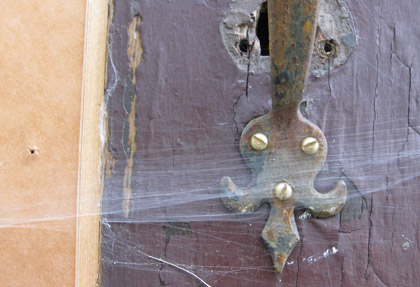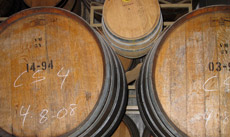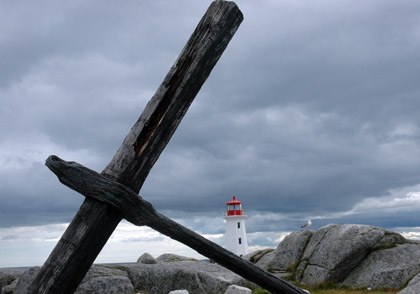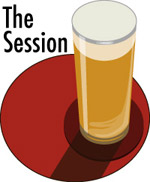
 Do you think you know where in the beer world the photo above was taken?
Do you think you know where in the beer world the photo above was taken?
I hope that Round Three of this not-a-contest (though there will be prizes, details) turns out to be pretty easy for some of you.
The second photo should guarantee that, so consider it your weekly hint.
Comment away. I hope to get back to you eventually, but online access is going to be continue to be hard for us to come by in the next week or so (no complaints – much to be said for national park campgrounds if you don’t covet electricity and Internet connections).
That’s why this post is a day late and why there will be no Monday musing this week.
Location revealed (Wednesday, Aug. 6). The photo is of the door on the building attached to Allagash Brewing that holds it coolship. I called attention to it last December and finally got to see it last week.
Allagash founder Rob Tod had shown somebody else the room just the day before, but an industrious spider had already spun this web less than 24 hours later. There were more spider webs inside.
Allagash has brewed four batches using the coolship, two last winter and two more this spring. They now reside in Allagash’s barrel room in various size French oak barrels and used bourbon barrels (just because). It will be a year or more, brewmaster Jason Perkins said, before it is clear what will come of the beer in progress.
There’s more to report from the Allagash barrel room. A new/used foder acquired from Bonny Doon in California. Perkins was preparing to put Allagash Tripel in it the next day, along with a special collection of brewing bugs just itching to get out of a grundy tank in the barrel room. Film at 10.

 How bad do I feel I’ve missed the last two rounds of The Session?
How bad do I feel I’ve missed the last two rounds of The Session?
 Do you think you know where in the beer world the photo above was taken?
Do you think you know where in the beer world the photo above was taken?